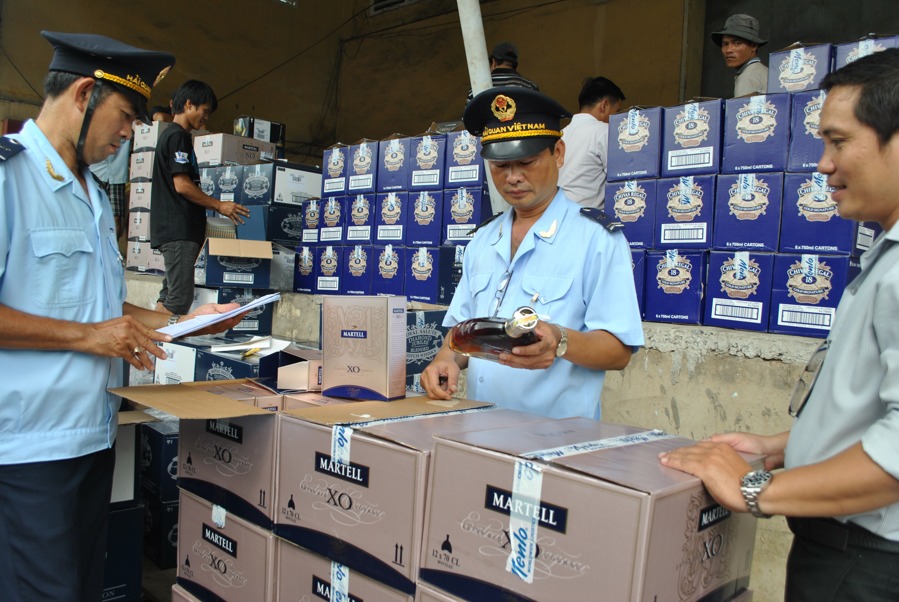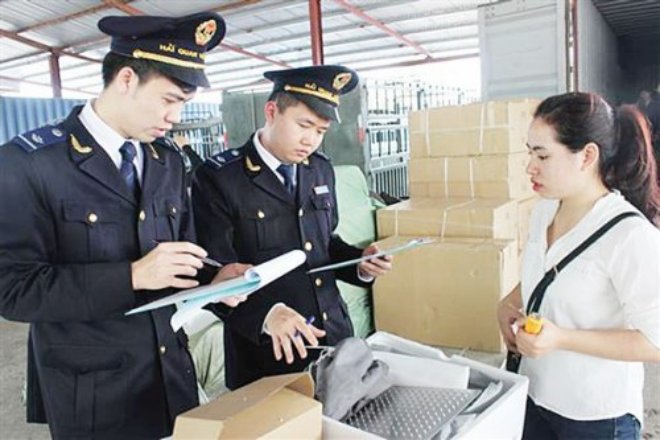Regulations for post-customs clearance inspection in Vietnam
21:09, 10/07/2024
Post-clearance inspection is the customs authority's examination of documents and records related to goods. To ensure one's rights during post-customs clearance inspection, it is necessary to understand the following regulations.
| Content | Post-customs clearance inspection at the Customs Authority's Office | Post-customs clearance inspection at the Declarant's Office |
| Cases of Post-customs clearance inspection | According to Article 78 of the Customs Law and Clause 1, Article 142 of Circular 38/2015/TT-BTC (amended by Clause 73, Article 1 of Circular 39/2018/TT-BTC): - Inspection when there are signs of violations of customs laws and other laws relating to export and import management. - Conduct Post-customs clearance inspection based on risk management application. - Inspect the compliance with laws of the customs declarant. |
According to Clause 1, Article 143 of Circular 38/2015/TT-BTC as amended by Clause 74, Article 1 of Circular 39/2018/TT-BTC: - Inspection when there are signs of violations of customs laws and other laws related to export and import management, including cases that have been inspected at the customs authority's office but the customs authority discovers new information or other signs of violations, posing tax risks. - Conduct Post-customs clearance inspection based on risk management application. - Inspect the compliance with laws of the customs declarant. - Conduct specialized inspections for cases where tax and customs records are overdue for Post-customs clearance inspection. |
| Cases Not Subject to Post-customs clearance inspection | According to Point a.3, Clause 1, Article 142 of Circular 38/2015/TT-BTC (amended by Clause 73, Article 1 of Circular 39/2018/TT-BTC): - Customs records of identical or similar shipments to records of shipments that the Customs Sub-department has inspected post-clearance and accepted the declarations of the same customs declarant, provided there is no additional information or signs of violations. If there are still suspicious signs in the records of identical or similar shipments, they may still be subject to inspection. - Large quantities of goods, complex types of goods, posing tax risks that require Post-customs clearance inspection at the customs declarant's office. |
|
| Documents to be Inspected | According to Clause 2, Article 142 of Circular 38/2015/TT-BTC (amended by Clause 73, Article 1 of Circular 39/2018/TT-BTC): - Customs records; - Commercial invoices; - Transport documents; - Sale contracts; - Certificates of origin; - Payment documents, technical files, and related documents for exported and imported goods. |
According to Clause 2, Article 143 of Circular 38/2015/TT-BTC as amended by Clause 74, Article 1 of Circular 39/2018/TT-BTC: - Customs records; - Accounting books, accounting documents, and other relevant documents, data related to exported and imported goods; - Actual exported and imported goods when necessary and within the provisions of the Customs Law, within 5 years from the date of customs declaration registration to the date of inspection decision issuance. |
| Other Notes | - The decision on Post-customs clearance inspection at the customs authority's office is sent to the customs declarant within 3 working days from the date of signing, and at least 5 working days before the inspection date. - If the customs declarant does not submit documents or send a representative to work at the customs authority within 3 working days from the inspection date stated in the Inspection Decision, the customs authority will handle administrative violations and proceed based on the data records currently held by the customs authority. |
- Except where signs of violations are detected, the customs authority will issue an inspection decision and hand it directly to the customs declarant without prior notice; in other cases, the inspection decision must be sent within 3 working days from the date of signing and at least 5 working days before the inspection date. - If the customs declarant does not send a representative to work, does not explain, or does not provide documents as required by the customs authority, the customs authority will handle administrative violations according to regulations. |
Duy Thinh
Related Content
- Number of deputy directors of departments in Vietnam in accordance with Decree 45/2025/ND-CP
- Cases ineligible for pardon in Vietnam in 2025
- Decree 50/2025 amending Decree 151/2017 on the management of public assets in Vietnam
- Circular 07/2025 amending Circular 02/2022 on the Law on Environmental Protection in Vietnam
- Adjustment to the organizational structure of the Ministry of Health of Vietnam: Certain agencies are no longer listed in the organizational structure
- Vietnam aims to welcome 22-23 million international tourists in Vietnam in 2025
SEARCH ARTICLE
Related Article
-

- Cases of post-customs clearance inspection in ...
- 13:05, 19/07/2023
-

- Everything you need to know about Post-customs ...
- 10:05, 16/04/2021
JUST UPDATED
-

- Notable new policies of Vietnam effective as of ...
- 16:26, 11/04/2025
-
.Medium.png)
- Notable documents of Vietnam in the previous week ...
- 16:21, 11/04/2025
-
.Medium.png)
- Notable documents of Vietnam in the previous week ...
- 16:11, 02/04/2025
-
.Medium.png)
- Notable new policies of Vietnam to be effective ...
- 16:04, 02/04/2025
-
.Medium.png)
- Notable new policies of Vietnam effective from ...
- 14:51, 21/03/2025
New text summary report
-
Real estate
-
Policy analysis
-
Legal Counselling
-
Case law
-
Forms and Templates
-
New text catalog
-
New Text Notification
-
Highlights of the week
-
Finance
-
New policy in effect
-
Labor - Salary
-
Officials and civil servants
-
Land - Housing
-
Tax-free-fee
-
Custom
-
Enterprise - Investment
-
Administration
-
Insurance
-
Civil
-
Set of Laws
-
News about Case Law
-
Economy
-
Life
-
Health
-
Cultural
-
Commerce
-
Military
-
History
-
Strange story
-
Criminal
-
Traffic
-
Education
-
Other
 Article table of contents
Article table of contents
